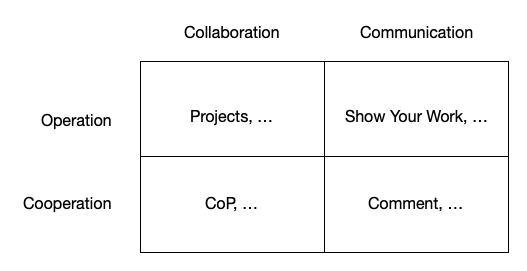Twice out of three recent opportunities, I’ve been thwarted from my intentions by platform capabilities. And, once, I was supported. But this capability is so basic and so valuable, I thought I’d make the argument. So here I’m making the case for gated submissions.
First, what are gated submissions? It’s pretty simple: learners post their response to a question, and can’t see others’ responses until they submit their own. A valuable extension is for them to then be able to comment on others’ submissions. Technically, it’s simple. Pedagogically, it’s powerful.
Why is this so valuable? Well, it starts from social cognitive processing. When you have to create a response, you have to apply knowledge. And that’s a necessary part of learning. The assignment matters, of course, so it’s about applying the knowledge in a way you’ll need to do afterwards, or reflecting. It’s useful additional processing.
Not seeing others’ responses before you create your own is important, just like in brainstorming. That means you’re processing on your own, before you see how others have processed. Thus, the importance of gating, not just any old discussion.
Then, when you’ve committed and come up with a solution, seeing others’ is now much more valuable. You can compare their output with yours, and infer their underlying thinking. And for anything with a reasonable amount of complexity, this is insightful. Even better, of course, if you have them also share their thinking.
Further, if then they can comment on others, substantively (not just “great work”), you’re getting even more processing. I recommend you require commenting on someone’s who hasn’t been commented on helps ensure everyone gets useful feedback. The instructor observes the overall tilt, and comments on that, addressing any misconceptions, etc.
It can just be text, or ideally they can also have attachments. Thus, the outputs can be videos, spreadsheets, documents, whatever captures the thinking, and appropriately if particular types of assignments. Students respond in either their preferred way, or as the dictates of the assignment suggest.
Overall, you’re supporting rich responses and having a way to see others’ thinking. Short of doing group assignments, this is a great way to support meaningful thinking. So that’s the case for gated submissions. Now, will you please go and implement them in your platforms? Please?
